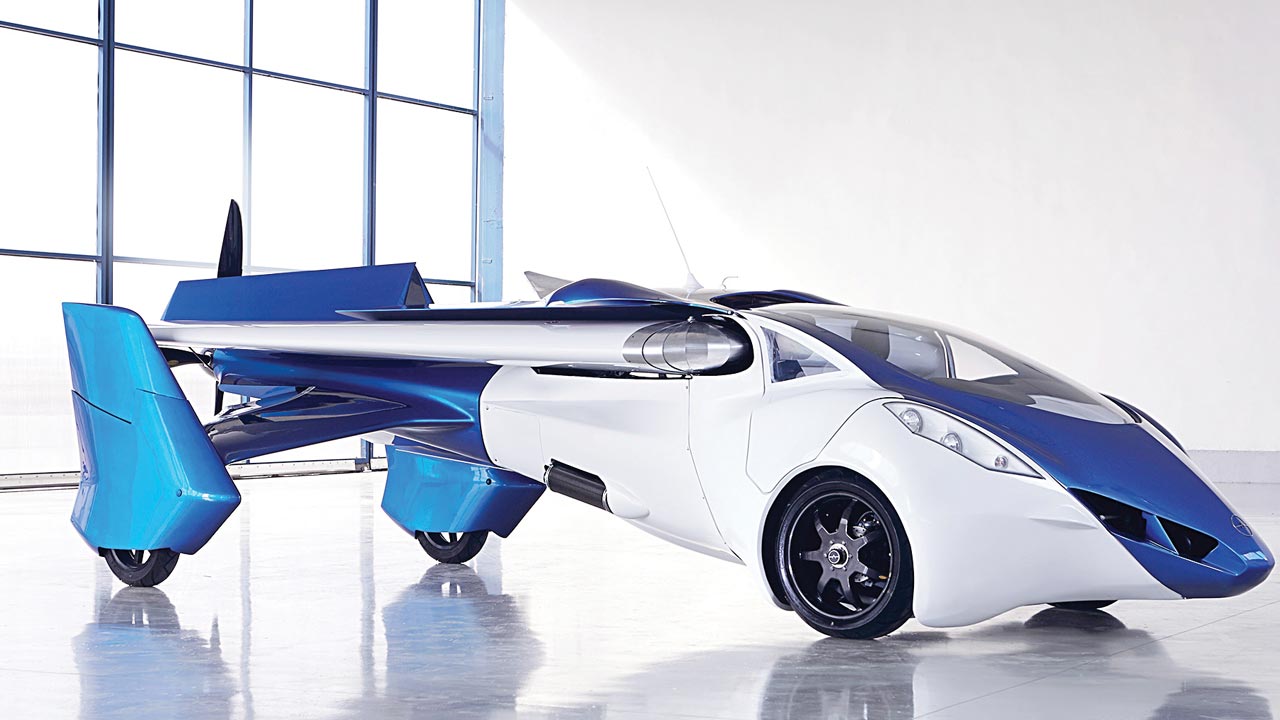- Uber Hires Veteran NASA Engineer to Develop Flying Cars
In 2010, an advanced aircraft engineer at NASA’s Langley Research Center named Mark Moore published a white paper outlining the feasibility of electric aircrafts that could take off and land like helicopters but were smaller and quieter. The vehicles would be capable of providing a speedy alternative to the dreary morning commute.
Moore’s research (PDF) into so-called VTOL—short for vertical takeoff and landing, or more colloquially, flying cars—inspired at least one billionaire technologist. After reading the white paper, Google co-founder Larry Page secretly started and financed two Silicon Valley startups, Zee Aero and Kitty Hawk, to develop the technology, Bloomberg Businessweek reported last summer.
Now Moore is leaving the confines of the U.S. National Aeronautics and Space Administration, where he has spent the last 30 years, to join one of Google’s rivals: Uber Technologies Inc. Moore is taking on a new role as director of engineering for aviation at the ride-hailing company, working on a flying car initiative known as Uber Elevate. “I can’t think of another company in a stronger position to be the leader for this new ecosystem and make the urban electric VTOL market real,” he says.
Uber isn’t constructing a flying car yet. In its own white paper published last October, the company laid out a radical vision for airborne commutes and identified technical challenges it said it wanted to help the nascent industry solve, like noise pollution, vehicle efficiency and limited battery life. Moore consulted on the paper and was impressed by the company’s vision and potential impact.
Nikhil Goel, Uber’s head of product for advanced programs, says the company wants to organize the industry to help spur development of flying cars. “Uber continues to see its role as an accelerant-catalyst to the entire ecosystem, and we are excited to have Mark joining us to work with manufacturers and stakeholders as we continue to explore the use case described in our whitepaper,” Goel wrote in an e-mailed statement.
Moore acknowledged that many obstacles stand in the way, and they’re not only technical. He says each flying car company would need to independently negotiate with suppliers to get prices down, and lobby regulators to certify aircrafts and relax air-traffic restrictions. But he says Uber, with its 55 million active riders, can uniquely demonstrate that there could be a massive, profitable and safe market. “If you don’t have a business case that makes economic sense, than all of this is just a wild tech game and not really a wise investment,” Moore says.
Uber’s vision is a seductive one, particularly for sci-fi fans. The ride-hailing company envisions people taking conventional Ubers from their homes to nearby “vertiports” that dot residential neighborhoods. Then they would zoom up into the air and across town to the vertiport closest to their offices. (“We don’t need stinking bridges!” says Moore.) These air taxis will only need ranges of between 50 to 100 miles, and Moore thinks that they can be at least partially recharged while passengers are boarding or exiting the aircraft. He also predicts we’ll see several well-engineered flying cars in the next one to three years and that there will be human pilots, at least managing the onboard computers, for the foreseeable future.
His move to Uber is a risky one. Moore says he’s leaving NASA one year before he’s eligible for retirement and walking away from a significant percentage of his pension and free health care for life “to be in the right place at the right time to make this market real.” (Though it’s probably safe to say that Uber, with some $11 billion on its balance sheet, is making it worth his while.) Moore seems to be disillusioned with NASA, saying the agency is leaving promising new aviation markets to the private industry. “It’s the federal government who is best positioned to overcome extremely high levels of risks,” he says.
While NASA is larded with layers of bureaucracy and management, Uber Chief Executive Officer Travis Kalanick has been closely involved in hatching his company’s flying car plans, Moore says. That is, when he’s not distracted with his own political crises, such as his role on President Donald Trump’s advisory council, which he relinquished last week after criticism from customers, drivers and employees.
Kalanick’s bet on Uber Elevate is another indication that while Silicon Valley seems on the surface to be consumed with politics and protests these days, the march into the future continues apace.


 Billionaire Watch3 weeks ago
Billionaire Watch3 weeks ago
 Startups4 weeks ago
Startups4 weeks ago
 News4 weeks ago
News4 weeks ago
 News4 weeks ago
News4 weeks ago
 Bitcoin4 weeks ago
Bitcoin4 weeks ago
 Naira4 weeks ago
Naira4 weeks ago
 Forex3 weeks ago
Forex3 weeks ago
 Treasury Bills4 weeks ago
Treasury Bills4 weeks ago














